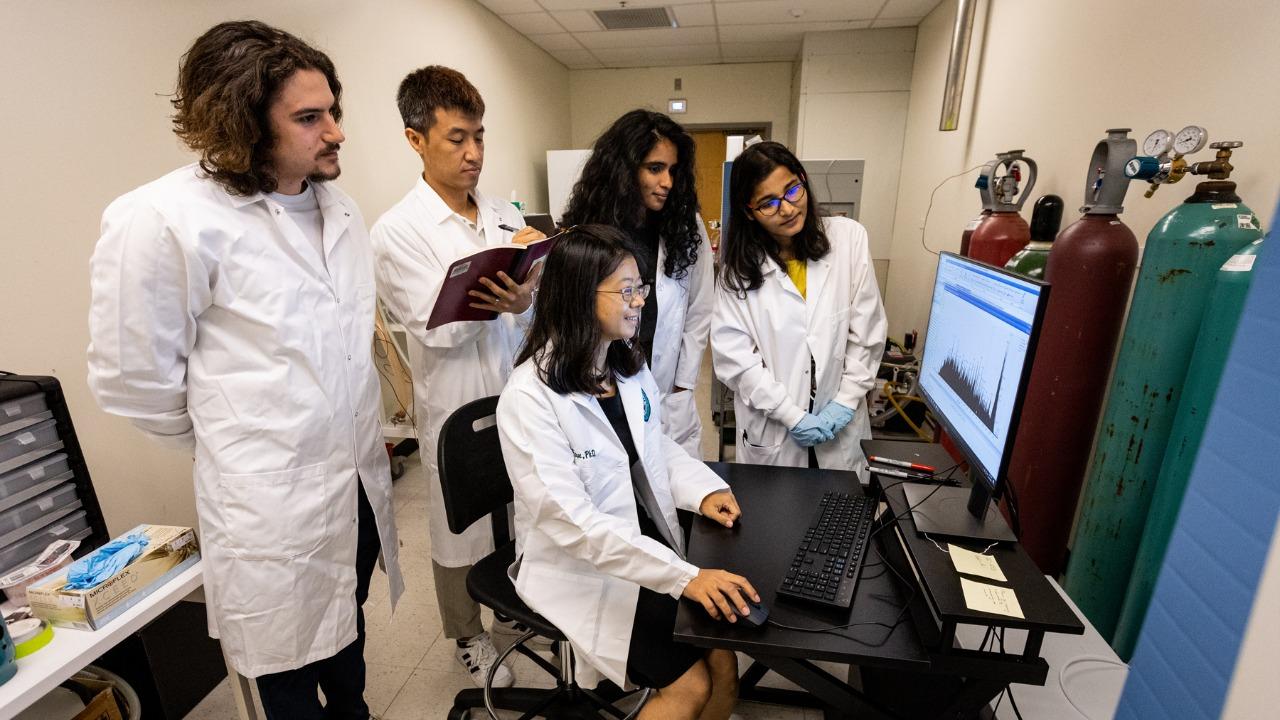Researcher awarded Intelligence-driven mass spectrometry system from NIH grant
Jia Fan, PhD, an assistant professor in the Department of Biochemistry and Molecular Biology’s Center of Cellular and Molecular Diagnostics (CCMD) at Tulane University School of Medicine, was awarded a $1.4 million National Institutes of Health S10 shared instrument grant. The award will support the purchase of a state-of-the-art mass spectrometry system for the Tulane Proteomic Core Facility, which is directed by Fan.
With the new system, Fan and her Tulane Proteomics team will help scientists across Tulane conduct basic research to better understand disease processes such as cancer, diabetes and age-related diseases. The equipment will also be used for translational research to find novel biomarkers for early diagnosis and prognosis.
“This high-end equipment will open a new era of proteomic studies in Louisiana by providing many functions that currently do not exist anywhere in our state,” said Fan. “My team will utilize this system to develop revolutionary single-cell proteomic technologies, providing deeper information of human health.”
The funded instrument is a digitally advanced Thermo Scientific Orbitrap Eclipse Tribrid mass spectrometry (MS) system, which has inherent flexibility and built-in intelligence to enable critical insights and breakthroughs. The Eclipse mass spectrometer system is the first of its kind to be installed in Louisiana and has several unique improved features that will benefit the biological research being done at Tulane.
The real-time capabilities of the Orbitrap Eclipse use the latest data acquisition strategies to enhance experimental efficiency and ultimately accelerate tandem mass tagging (TMT) for multiplexed quantitative analysis of proteomes. The instrument fundamentally improves the sensitivity, speed and accuracy of quantitative proteome analysis, enabling scientists to comprehensively define proteoforms and protein complexes at an unprecedented level of detail. Ultrasensitive LC−MS analysis could be achieved using the Orbitrap Eclipse Tribrid MS, which finally makes real single-cell proteomics analysis.

